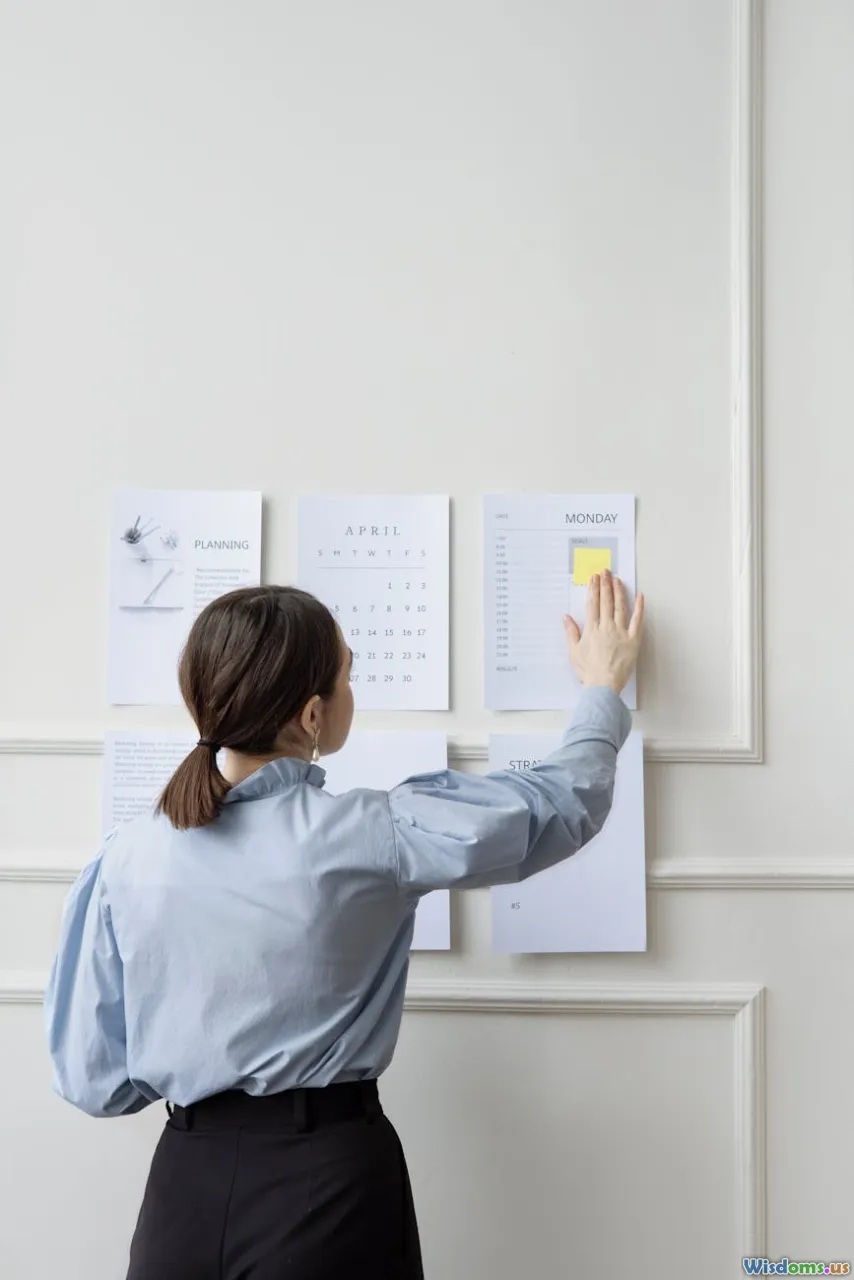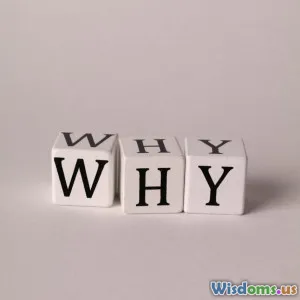
How Waking Up at 5 AM Changed My Productivity in Just 30 Days
7 min read Discover how waking up at 5 AM transformed my productivity and mindset in just 30 days with actionable insights and real results. (0 Reviews)
How Waking Up at 5 AM Changed My Productivity in Just 30 Days
Introduction
For years, I struggled to keep pace with the never-ending demands of work and life. My days felt rushed, and no matter how many hours I worked, I felt like my productivity was stuck in a rut. Then, on a whim, I decided to wake up at 5 AM every morning for 30 days. What happened changed my approach to work, time management, and even personal fulfillment. This experiment wasn’t just about waking up early; it was about reclaiming my mornings and transforming my entire day.
In this article, I’ll share how shifting my wake-up time advanced my productivity dramatically. I’ll break down the advantages, the challenges, the mindset shifts, and actionable tips - backed by research and personal experience - to help you decide if an early start could change your life too.
The Science Behind Early Rising and Productivity
Waking up at 5 AM aligns well with our natural circadian rhythms when paired with proper sleep hygiene. According to a study published in the journal Sleep Medicine, early risers tend to be more proactive and experience a greater sense of well-being (Randler, 2010). This explains why starting your day earlier can set a productive tone.
Early mornings are often the least disrupted part of the day—quiet, focused, and void of most distractions. Famous high achievers like Apple’s Tim Cook and Oprah Winfrey famously swear by the 5 AM wake-up call, crediting it for their clarity and productivity.
Week 1: Embracing the Early Wake-Up Call
Waking up at 5 AM wasn’t easy initially. The alarm was jarring; the temptation to snooze overwhelming. However, I realized preparation was key:
- Gradual shift: Instead of a drastic change, I moved my alarm earlier by 15 minutes daily.
- Prioritize sleep: Ensured I went to bed between 9 PM and 10 PM to get enough rest.
- Morning ritual: Developed a routine including hydration, light stretching, and journaling to ease into the day.
These adjustments reduced morning grogginess and made early waking sustainable.
Week 2: Discovering the Power of Focused Mornings
By the second week, my mornings were uninterrupted and I reclaimed 2-3 extra productive hours daily. I dedicated this time to high-priority tasks requiring deep focus.
For example, writing and strategic planning, which demand long periods of concentration, were accomplished swiftly. With no urgent emails or meetings to break my concentration, I felt tasks progressed efficiently. This aligns with findings from the Harvard Business Review, which highlights uninterrupted blocks of time as essential for productivity.
Moreover, I noticed mornings provided a psychological advantage — starting the day on my terms established a proactive mindset rather than a reactive one.
Week 3: Building Momentum and Healthy Habits
As the habit solidified, early mornings became a springboard to other positive changes. I incorporated:
- Exercise: A brisk 20-minute workout boosted my energy and mood throughout the day.
- Mindfulness meditation: Reduced stress and sharpened focus.
- Healthy breakfast preparation: Replacing rushed meals with nourishing options increased vitality.
These habits multiplied the productivity gains and well-being, showcasing how morning routines create a ripple effect. As motivational speaker Robin Sharma puts it, "Own your morning. Elevate your life."
Week 4: Overcoming Challenges and Sustaining Growth
By day 30, waking at 5 AM felt natural but challenges arose. Social events, weekend temptations, and occasional fatigue tested my commitment. To sustain this, I:
- Maintained consistent sleep schedules even on weekends.
- Flexibility with self-compassion: Allowed myself rest days without guilt.
- Accountability partners: Shared progress with friends trying early rising.
Critically, I learned it’s not about perfection but persistence. Even legendary entrepreneur Jeff Bezos prioritizes rest to maintain sharpness in the early hours.
Real-World Impact: Measurable Productivity Boost
Quantitatively, my work output improved as follows:
- Completed weekly goal-setting and task assessments, increasing project completion rate by 25%.
- Reduced procrastination by starting complex tasks immediately after waking.
- Enhanced creativity and problem-solving—attributed to quiet, undisturbed time.
Qualitatively, I reported better mood, less stress, and a sense of control over my day.
Conclusion: Is Waking Up at 5 AM Right for You?
Waking up at 5 AM transformed my productivity in just 30 days by fostering deeper focus, instilling healthier habits, and enhancing mental clarity. It’s not a silver bullet but a powerful catalyst for change when paired with disciplined preparation.
If you’re debating trying it, remember: start gradually, prioritize sleep, and design rituals that energize you.
Early risers like Benjamin Franklin said, "Early to bed and early to rise makes a man healthy, wealthy, and wise." While modern life differs, the essence remains — claim your mornings, and you may just unlock your most productive self.
Why not try waking up at 5 AM tomorrow? Your future productive self will thank you.
References
- Randler, C. (2010). Morningness–eveningness, sleep–wake variables and big five personality factors. Personality and Individual Differences.
- Harvard Business Review: Managing Attention at Work
- Sharma, R. The 5 AM Club
Written by a productivity enthusiast who experienced firsthand the transformative power of early rising.
Rate the Post
User Reviews
Popular Posts



















